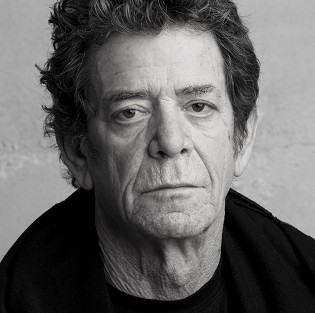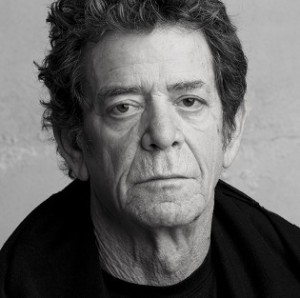
Podcast: Play in new window | Download
Subscribe: RSS
 October 28, 2013 – Segment 1
October 28, 2013 – Segment 1
Marc shares some of what happened on this day in history, including the establishment of Harvard University, the dedication of the Statue of Liberty in New York, and the Black Monday Wall Street Crash of 1929, among many other things. We also honor the legacy of the Velvet Underground’s Lou Reed, who passed away yesterday.
holidays
Ohi Day ( Anniversary of the “No”) is celebrated throughout Greece, Cyprus and the Greek communities around the world on October 28 each year, to commemorate the rejection by Greek Prime Minister Ioannis Metaxas (in power from August 4, 1936, until January 29, 1941) of the ultimatum made by Italian dictator Benito Mussolini on October 28, 1940.
events
1636 – A vote of the Great and General Court of the Massachusetts Bay Colony establishes the first college in what would become the United States, today known as Harvard University.
1834 – The Battle of Pinjarra is fought in the Swan River Colony in present-day Pinjarra, Western Australia. Between 14 and 40 Aborigines are killed by British colonists.
1862: The First Kansas Colored Volunteers put down a force of Rebels at the Battle of Toothman’s Mound (Island Mound, MO). This was the first engagement for Black troops in the Civil War.
1886: The Statue of Liberty, a gift of friendship from the people of France to the people of the United States, is dedicated in New York Harbor by President Grover Cleveland.
1905: On this day, George Bernard Shaw’s play Mrs. Warren’s Profession, which dealt frankly with prostitution, is performed at the Garrick Theater in New York. The play, Shaw’s second, had been banned in Britain. After only one performance, puritanical authorities in New York had the play closed. On October 31, the producer and players were arrested for obscenity, but a court case against the play failed to convict playwright, producer, or actors. Although some private productions were held, the show wasn’t legally performed in Britain until 1926.
1914: The Omega Psi Phi Fraternity, originally founded at Howard University in 1911, was incorporated under the laws of the District of Columbia
1918, German sailors begin to mutiny – Sailors in the German High Seas Fleet steadfastly refuse to obey an order from the German Admiralty to go to sea to launch one final attack on the mighty British navy, echoing the frustrated, despondent mood of many on the side of the Central Powers during the last days of World War I.
1919: Congress passes the Volstead Act over President Woodrow Wilson’s veto. The Volstead Act provided for the enforcement of the 18th Amendment to the U.S. Constitution, also known as the Prohibition Amendment.
1929 – Black Monday, a day in the Wall Street Crash of 1929, which also saw major stock market upheaval.
1948: Nine more Germans convicted of war crimes were hanged today as the US Army continued with executions of those convicted of war crimes. The total now is 29 hanged at Landsberg prison since October 15th
1958 – John XXIII is elected Pope.
1961: The second so-called “Apache trial” begins for rock-and-roller Chuck Berry. Although his earlier conviction for transporting a minor across state lines for immoral purposes in violation of the Mann Act was thrown out on appeal, the prosecution decided to retry Berry.
1962: The Cuban Missile crisis comes to a close as Soviet leader Nikita Khrushchev agrees to remove Russian missiles from Cuba in exchange for a promise from the United States to respect Cuba’s territorial sovereignty. This ended nearly two weeks of anxiety and tensions between the United States and the Soviet Union that came close to provoking a nuclear conflict. The consequences of the crisis were many and varied. Relations between Cuba and the Soviet Union were on shaky ground for some time after Khrushchev’s removal of the missiles, as Fidel Castro accused the Russians of backing down from the Americans and deserting the Cuban revolution. European allies of the United States were also angered, not because of the U.S. stance during the crisis, but because the Kennedy administration kept them virtually in the dark about negotiations that might have led to an atomic war.
1965 – The Gateway Arch, a 630-foot high parabola of stainless steel marking the Jefferson National Expansion Memorial on the waterfront of St. Louis, Mo., is completed after two and one-half years. Although it was predicted 13 lives would be lost in construction, not a single Ironworker died
1992: William “Bill” Cosby, critical of the portrayal of Black images, made a bid to buy NBC
2005: I. Lewis Libby, Jr., chief of staff to U.S. Vice President Dick Cheney, resigns following indictment on five federal felony charges. He is charged with obstruction of justice, perjury to a Grand Jury, and making false statements to the FBI in the Justice Department’s investigation into the Plame leak.
birthdays
1842: Anna Elizabeth Dickinson (October 28, 1842 – October 22, 1932) was an American orator and lecturer. An advocate for the abolition of slavery and for women’s suffrage, as well as a gifted teacher, Dickinson was the first woman to speak before the United States Congress. A gifted speaker at a very young age, she aided the Republican Party in the hard-fought 1863 elections and significantly influenced the distribution of political power in the Union just prior to the Civil War. Dickinson also was the first white woman on record to climb Colorado’s Longs Peak, in 1873.
-
In 1882 she said “We are told to maintain constitutions because they are constitutions, and what is laid down in those constitutions?… Certain great fundamental ideas of right are common to the world, and … all laws of man’s making which trample on these ideas, are null and void—wrong to obey, right to disobey. The Constitution of the United States recognizes human slavery; and makes the souls of men articles of purchase and of sale.”
1860 – KANO JIGORO (1860-1938) International sports pioneer who founded the martial art of judo.
1939 – Jane Alexander (born October 28, 1939) is an American actress, author, and former director of the National Endowment for the Arts.
1955 – Bill Gates, American businessman, co-founded Microsoft
1956 – MAHMOUD AHMADINEJAD – Iranian politician who was the sixth President of Iran from 2005 to 2013 whose regime was openly hostile to the western world.
1969 – BEN HARPER – Grammy Award-winning singer and guitarist, known for his variety of musical styles, including blues, soul, rock, and reggae.
deaths
1704 – John Locke, English philosopher (b. 1632)
1818: Abigail Adams died (First Lady, letter writer, manager)
In 1774 she said in a letter to her husband, “I wish most sincerely there was not a slave in this province. It always appeared a most iniquitous scheme to me–to fight ourselves for what we are daily robbing and plundering from those who have as good a right to freedom as we have.” Many people know that quote, but what many people don’t realize is that it was a direct response to slaves petitions to end the institution of slavery. Slaves appealed to Thomas Gage, Royal Governor of Massachusetts on May 25, 1774
1959 – Camilo Cienfuegos, Cuban revolutionary leader (b. 1932)
1970 – Baby Huey, American singer (Baby Huey & the Babysitters) (b. 1944)
Sources: The People History; Wikipedia List of Historical Anniversaries; This Day in Women’s History; This Day in Jewish History; This Day in African History;History.com; History Orb; Yenoba; Phil Konstantin’s North American Indian History; and This Day in Music




